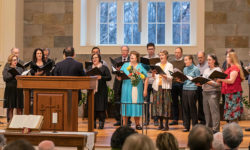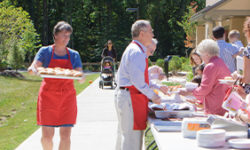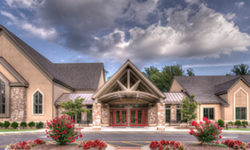God’s Word and the Pandemic: Part 2
September 27, 2021 |
Continued from Part 1:
Practical Ways to Live Out the Basic Biblical Principles
In light of these principles in my first post, what are some of the practical implications? It is not always easy to balance, and there are times when it’s easy to feel different principles or priorities are in tension. While not exhaustive, five of the practical out-workings of our approach are:
- Spiritual care encompasses the whole person. We must care for the body as well as the soul. Our bodies are the vehicle that allows us to live out God’s purposes to glorify Him, so we provide for the physical safety of our congregation in many ways. We clean the church, we augmented the air filters during the pandemic, we have first aid kits throughout the church, we have child safety protocols, etc. At the same time, we provide for the spiritual health of the congregation through teaching, meeting together in small groups, providing opportunities for the church to worship and to be together in community. These priorities have not been easy to balance in the pandemic.
- We must care for one another even in our diversity of opinions about Covid-19. Some in our congregation are more cautious; others are less risk adverse. Some of our decisions reflect that reality. We have offered different options for our congregation throughout the pandemic (virtual, outside, inside with masks, inside with more freedom, different sections for social distancing and masking, etc.). What is paramount for the body of Christ is to learn the beauty of deferring to one another and looking to the interests of others first. This is gospel community. The different choices that are offered don’t always conform to your personal assessment of the pandemic. Loving others means we prioritize others. This is easier said than done.
- Loving one another is best done in person and yet the pandemic made in-person gatherings impossible or altered throughout the past 18 months. Nevertheless, we continue to attempt to fulfill the commands that we have been given by God for one another. A pandemic doesn’t nullify our gospel responsibilities to one another. Our hope is to bring the church together while continuing to provide alternatives to provide mutual support to each other.
- We must also understand the community that we serve here in Princeton. Other parts of the country did things very differently concerning Covid-19. We consulted Public Health officials in Princeton. We took time to understand the recommendations and mandates given by various government agencies. We took into consideration the sensibilities of our community. We wanted to send a message to the community that we cared for them and that we were attempting to care for our neighbors by taking appropriate safety measures. While doing this, it probably needs to be said that we opened up indoor worship earlier than many churches in Princeton because we believe that worshipping in community is part of our calling before God. We served our community through various initiatives in helping health care workers, first responders, local business owners, and a number of individual benevolence needs.
- We will continue to use all the tools and resources available to us in order to seek the truth about our current situation. This includes God’s written Word, the ultimate authority on what is true and good and right. It also includes the people and networks that God has blessed us with at Stone Hill. The Re-opening Team has two MDs on it (who are also elders), including one who led the Princeton University campus through outbreaks, as medical director of McCosh Health Center, and another who was a leader of a hospital. We have also been able to consult experts in epidemiology and virology within our church and other medical professionals who have helped us with their expertise throughout the pandemic.






